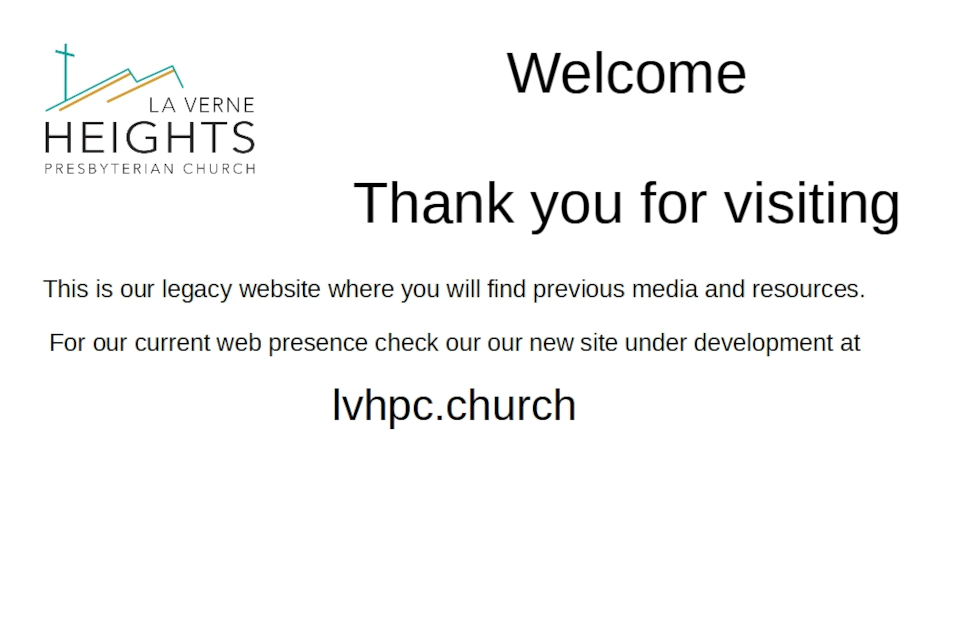Yom Kippur marks the Jewish Day of Atonement. It begins at sunset on Sunday, September 27th and ends at sunset on Monday, September 28th. The Session invites all members and friends of La Verne Heights Presbyterian Church to join with our Jewish neighbors in prayer and fasting* during Yom Kippur.
*Note: Children, the elderly, and those with chronic medical conditions should consult their physician before fasting.
The biblical book of Joel begins with the world falling apart. Famine, economic collapse, social upheaval, and environmental catastrophe are among the challenges the people face.
We can relate. 2020 has been a difficult year on so many fronts. We can wonder how we should respond as people of faith. What does it mean to turn to God during a season of suffering? In response to the events of his day, Joel invited the Israelites to lament:
| “Dress for a funeral and grieve, you priests; lament, ministers of the altar. Come, spend the night in funeral clothing, servants of my God, because the grain offering and the drink offering have gone from the temple of your God. Demand a fast, request a special assembly. Gather the elders and all the land’s people to the temple of the Lord your God, and cry out to the Lord.” – Joel 1:13-14, CEB |
Lament is an act of hope. It is a reminder that God can still be found in times of chaos. When the fires of suffering cloud our vision with smoke and ash, we remember that God is still God with and for us. Each year, on Ash Wednesday, we practice lament. It is not an accident that each year the lectionary offers the same verses from Joel.
| “Yet even now, says the Lord, return to me with all your hearts, with fasting, with weeping, and with sorrow; tear your hearts and not your clothing. Return to the Lord your God, for he is merciful and compassionate, very patient, full of faithful love, and ready to forgive. Who knows whether he will have a change of heart and leave a blessing behind him, a grain offering and a drink offering for the Lord your God? Blow the horn in Zion; demand a fast; request a special assembly. Gather the people; prepare a holy meeting; assemble the elders; gather the children, even nursing infants. Let the groom leave his room and the bride her chamber. Between the porch and the altar let the priests, the Lord’s ministers, weep. Let them say, “Have mercy, Lord, on your people, and don’t make your inheritance a disgrace, an example of failure among the nations. Why should they say among the peoples, ‘Where is their God?’” – Joel 2:12-17, CEB |
Throughout the Scriptures, fasting is an important means of prayer in seasons of suffering. When we fast, we invite our bodies and spirits to lament. We accept physical lack and discomfort in solidarity with a world that is suffering. We touch our hunger as a reminder of the world’s deepest hunger that can only be satisfied in God.
Should you choose to join Session in fasting and prayer, the following liturgy is provided as a guide. (Prayers and litanies are adapted from the Book of Common Worship, PC(U.S.A.), 2018, unless otherwise noted.)
Liturgy_for_Invitation_to_Day_of_Prayer_and_Fasting_Part_B





